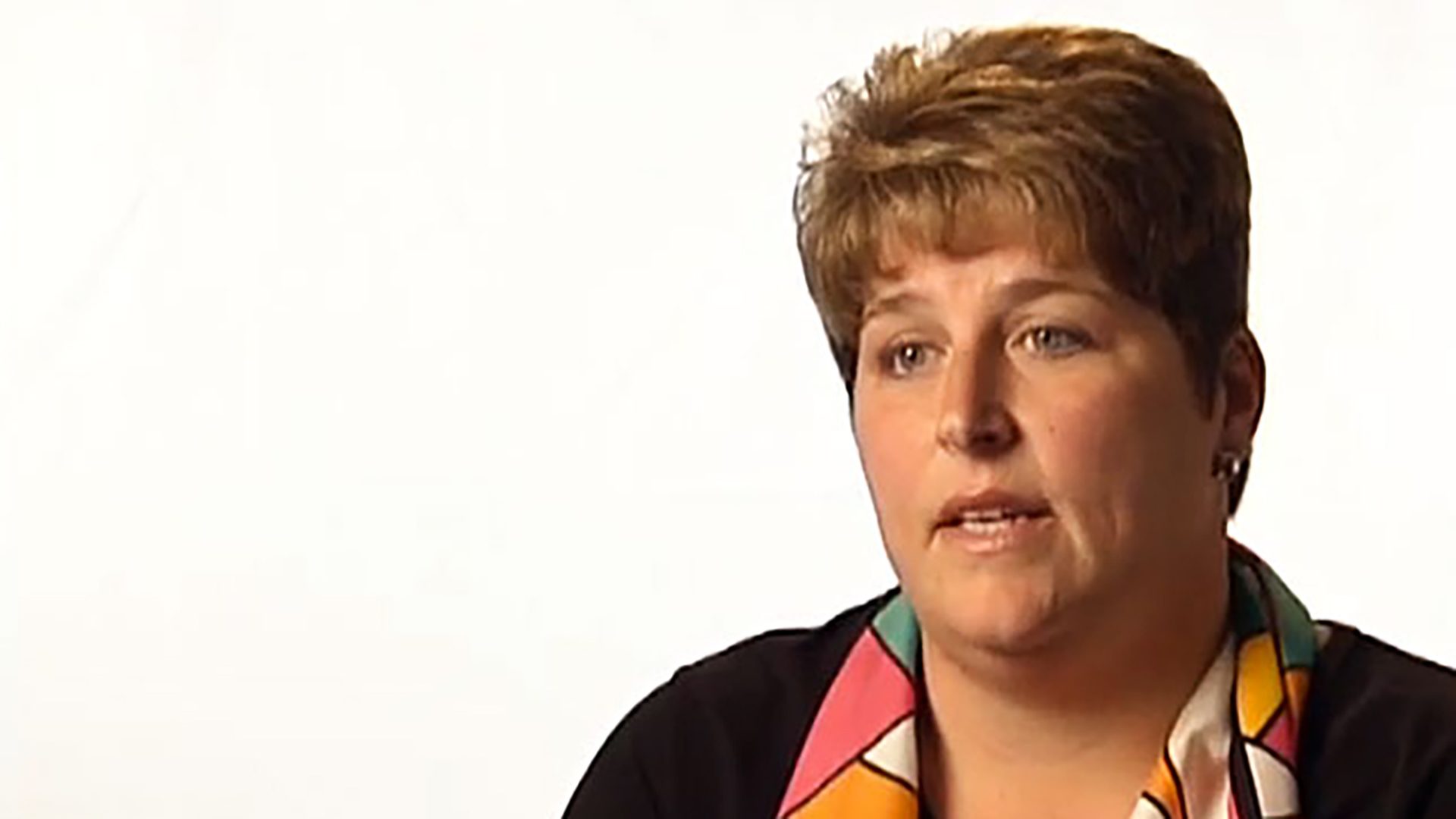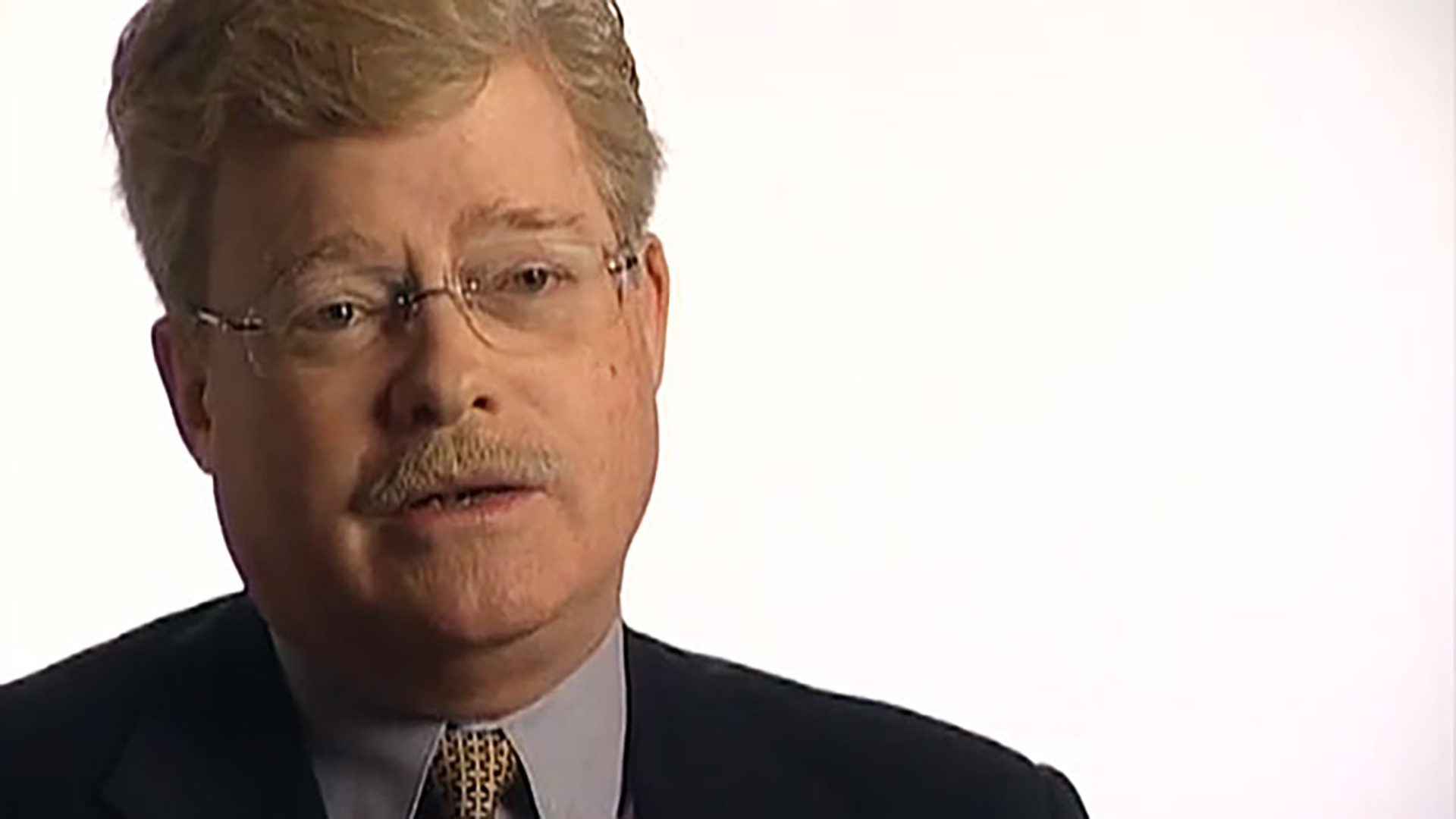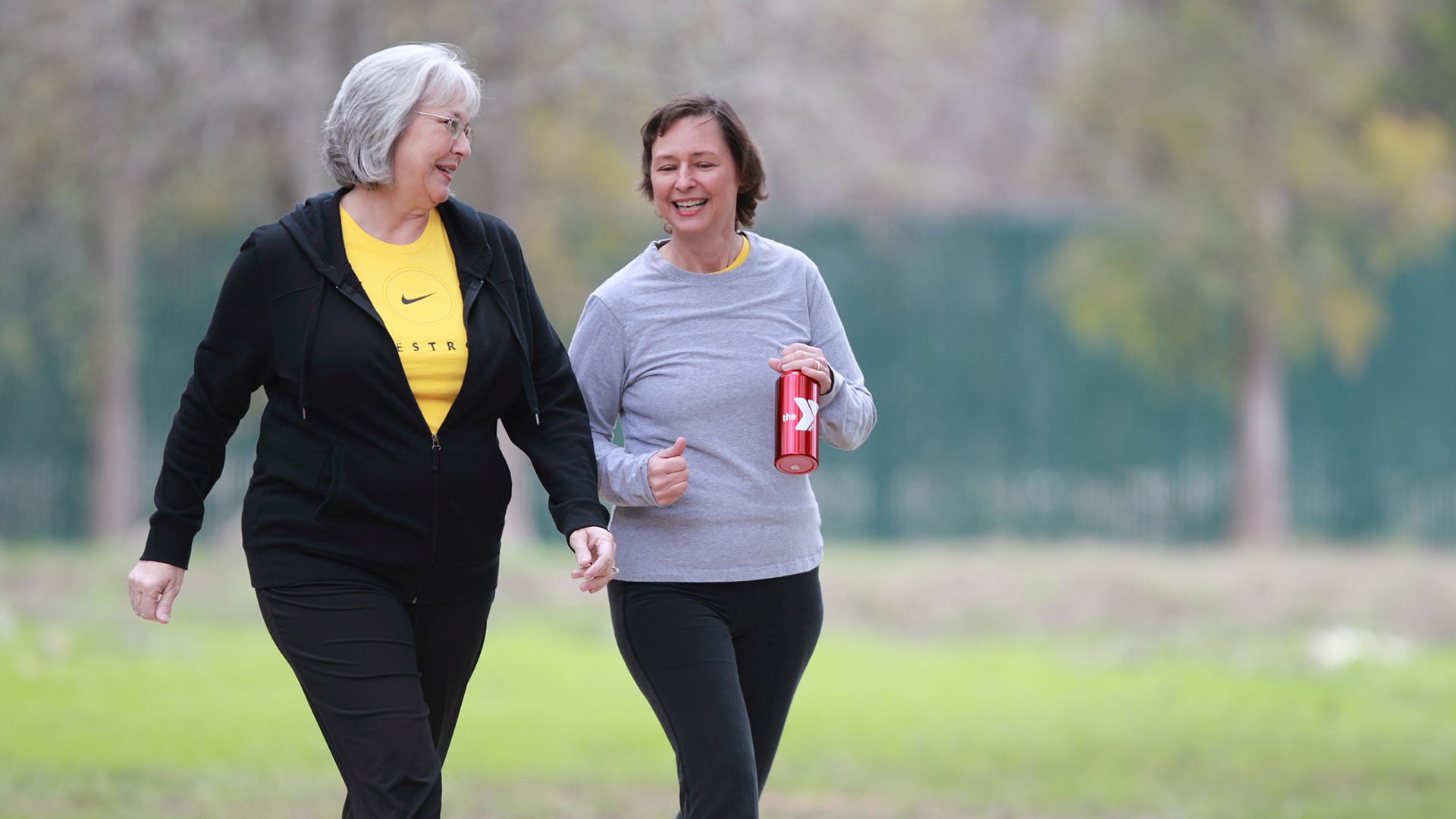Survivor Interview – Cindy D.
Cindy is a pancreatic cancer survivor. Cindy talks about Social Security benefits, experiencing insomnia, and dealing with diabetes.

I became a survivor on May 26, 1999, when I was diagnosed with pancreatic cancer.
We had recently purchased a new house. I had been running around and eating junk food, more than I would like to admit that we were eating. I didn’t feel good. No matter what I ate or drank, everything felt like it was sticking. At the time, I was trying to get pregnant, so we thought that I was nauseous from maybe being pregnant, because I hadn’t gotten my period. It kept getting worse and getting worse.
I had an ultrasound, an endoscopy, and a CAT scan. When they did the second endoscopy, there was a tumor on my pancreas. I was on heavy doses of pain medication, because the pain was making me sick to my stomach. I had to have a stent put in because the tumor was leaning on my bile duct, and that’s why I was throwing up so much. They also did a biopsy, and it was benign. I knew I had to have a Whipple operation. We went into Boston about a week later to see the surgeon at Mass General. He said, “The outside of the tumor is benign, but the inside is malignant, I can guarantee you.” I was on the floor. As soon as I looked at him, I wanted to cry. He said, “You need to get your affairs in order. You need to get your money in order, your house, a will.” And I said, “We’re not doing it. We refuse to do it. I’m not doing it because I’m gonna get through this.” So we didn’t. We still haven’t. We went home, and I had the surgery. It was a 12-hour operation.
They gave me about a two-week break to heal and get myself back together. I started chemotherapy. I had an IV pump for 24 hours a day. Unfortunately, I had a problem with it, and the pump collapsed in my arm. I had to have the pump removed. They didn’t want to put a pick line in again, so I had to go to the doctor’s and have one month’s worth of chemo in one day. It wasn’t great, but the radiation was worse than the chemo ever was. Of course, they’re radiating your stomach. I lost 30 pounds in less than four weeks. It really was horrible. It was nauseating. I finally graduated from radiation, and then I had to have another month’s worth of chemo in one day. I had chemo every week for 16 weeks. I’d have three weeks on, one week off, three weeks on, one week off.
Since then, it’s doctors every three months. That’s how it was for a while. CAT scans every six months. I’m on a new regimen of medication, and I have a chemo shot once a month. I started that a year ago, and I haven’t felt better. This is the best I’ve felt even before I was sick. I take my shot once a month, and if I need more, I have it at home. I take my medicine all day long. I have a lot of medicine to take. I carry my little pill case with me, but it keeps me moving. I’m not in the bathroom. I’m not sick. I’m not throwing up anymore. I can eat pretty much what I want. I exercise. That has been the key since chemo started. I exercise all the time. I walk. That’s really, really been the key for me.
Before the surgery, the doctor had said that one of the side effects would be diabetes. I just found out a month ago that I am diabetic. I was still feeling really good, but I was really tired. I wasn’t sleeping well. I’d eat, and in the morning, I’d be really bogged down. I went to the doctors, and they ran some sugar tests. No insulin. That was my choice. My pancreas doesn’t accept medication very well. They said, “You’re gonna go on insulin.” I said, “No, I’m not. I’ll walk more.” So I threw in another mile. I walk about eight miles every day.
They had told us, when I was in the hospital with the surgery, “You can pretty much guarantee a four- to five-year range, and your pancreas is gonna poop out a little bit.” Eventually, I will be on insulin. There’s gonna be no getting around it. He said, “You’re still young and fairly healthy. Let’s see if we can work it. It’s a way out.” Insulin is really hard on your system, from what I understand. I said, “I’ll try it.” So we don’t eat carbohydrates. We don’t drink soda. We don’t eat dessert. We walk and walk and walk.
I have sleep problems at night lately. I do nap. They told me not to nap for more than half an hour. I’ve been trying to stay away from it so that I can sleep at night, but I get to sleep and then I can’t stay asleep. This is something that they’re looking at, because they don’t know if it’s anything to do with my pancreas or not. For such a small organ, it does a lot of things. Sometimes I’m very itchy, which is very common when you have a Whipple operation. I’ll wake up in the middle of the night and start scratching, then I’m wide awake. Two nights ago, I started a sleep medication that knocks you out. But trying to get up in the morning is just as difficult.
For a long time, I didn’t work. My husband had a great job, don’t get me wrong, but we’re trying to buy a house. My prescriptions are pretty expensive every month. We have health insurance, but on top of that, I’m looking at $500-$600 a month in co-pays for prescriptions with enzymes. I had said to the doctor, “Is there any way we can get some oil? Massachusetts has all these programs. Anything?” And he said, “What about your Social Security?” And I said, “What about Social Security?” I figured that we had to be low income or whatever to get that. I didn’t realize it, but I was eligible to get disability Social Security. I went three years with nothing, and I’d had no idea. I do get that now, and I can work a couple days a week, so that helps out.
I have to say, out of everything, my husband, my mother and my father have probably been the best. I have a cousin who has survived prostate cancer, so when he found out, he called me. He came to my aunt’s house. We were there for lunch, and he said, “You need to come outside.” And I said, “Okay.” His eyes filled up with tears, and I said, “What’s wrong?” He’s like, “I didn’t want you to have the big C all by yourself.” I looked at him thinking that he had pancreas cancer too, and he said, “No, I have prostate cancer.” So I went with him for surgery and the whole nine yards. But my husband’s probably been the best. He’s been strong. I would have never made it through without him. I don’t think I would have been so happy making it through without him. My mother’s been good because she’s seen it. Every single one of her brothers and sisters have had some form of cancer. My aunt’s son died from cancer. So it’s definitely in our family.
I’ve never met another pancreatic cancer survivor. I have a friend that has breast cancer. I’m with her a lot. My cousin had prostate cancer, so I spend a lot of time with him. But it’s hard. It’s difficult to go to things for pancreatic cancer because I get a lot of grief. There’s jealousy, I think. “What did you do that my father didn’t do?” “What did you do that my mother didn’t do?” There was a man two years ago at a walk, and I was horrified when I saw him. He was yellow. He was sick. I was talking with him, and he was like, “I’m not gonna live.” I tried to make him feel better. He died two weeks later. I played in a golf tournament last October for him. That day at the tournament, his brother was very kind to me, made a big deal about me being a survivor. They had a shirt for me, everything. His father was horrible to me. He was mad at me. A lot of people are just mad. I feel bad. It’s gotten to the point that I’ve pulled away from doing a few things. It’s difficult.
The biggest thing is check yourself. As a family member of three people that have had pancreatic cancer, be careful. My cousin called me the other day. “My stomach hurts. My side’s killing me.” I said, “Just go. Don’t put it off.” She comes to find out, she has pancreatitis. There are blood tests they can do to check things. Don’t be afraid to go to the doctors.
Survivorship means the fact that I get to spend more time with everybody. Last year for my four-year survivorship, my husband bought me a brand new convertible. I absolutely love it. I was driving home from the grocery store, and it was a beautiful spring day, everything was chirping. I said, “I’m pretty lucky. It’s nice.” I think that every day. There isn’t a day that doesn’t go by that I’m not out in the yard picking the flowers, playing with the dog, or taking a walk.
My name is Cindy Ducharme, and I am a five-year pancreatic cancer survivor.

